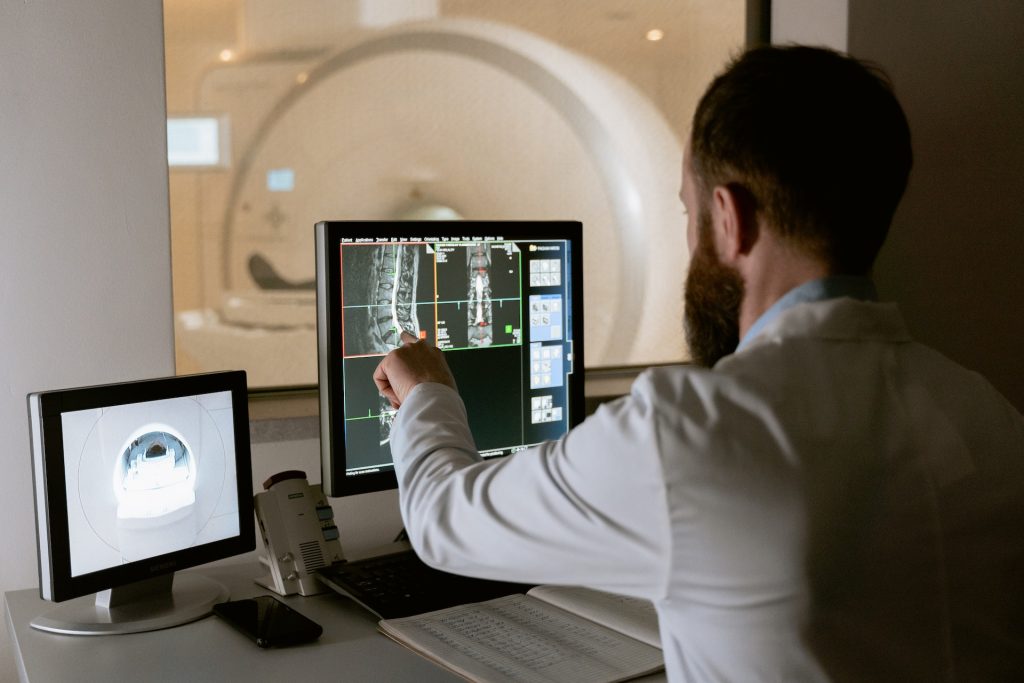Discover how bone density changes as we age and the impact it has on our overall health.
How Does Bone Density Change With Age?
Bone density plays a crucial role in our overall health, especially as we age. It’s like the building blocks of our skeletal system, providing strength and structure to our bones. But what exactly is bone density? And why is it important to maintain healthy levels as we grow older? In this article, we’ll dive deep into the aging process and its impact on bone density, exploring gender differences, lifestyle factors, and medical conditions that can affect it. So, let’s get started and discover all the fascinating aspects of bone density!
Understanding Bone Density
Before we delve into the nitty-gritty, let’s take a moment to understand what bone density actually means. In simple terms, bone density refers to the amount of mineral content present in your bones. Think of it like a savings account for your skeleton, the more minerals you have deposited, the denser and stronger your bones become. We can measure bone density using a fancy machine called a dual-energy X-ray absorptiometry (or DXA for short), which gives us a clear picture of how healthy our bones are.
Now that we have a basic understanding of bone density, let’s explore why it’s so important for our overall well-being!

What is Bone Density?
Bone density, as we mentioned earlier, refers to the mineral content in our bones. Specifically, it measures the concentration of minerals like calcium and phosphorus. These minerals are like superheroes that provide the building blocks for bone strength. So, the higher our bone density, the better equipped our bones are to withstand everyday challenges, like dodging furniture or performing spontaneous dance moves.
But how exactly do these minerals contribute to bone density? Well, calcium is the star of the show when it comes to bone health. It plays a crucial role in maintaining the structural integrity of our bones. Without enough calcium, our bones can become weak and brittle, making us more susceptible to fractures. Phosphorus, on the other hand, works hand in hand with calcium to form a strong mineral matrix that gives our bones their density and strength.
Interestingly, our bone density is not fixed throughout our lives. It tends to peak in our early 20s and gradually declines as we age. That’s why it’s important to build strong bones during our youth through a combination of a balanced diet and regular exercise. However, it’s never too late to take care of our bone health. By adopting healthy habits and making conscious choices, we can still improve and maintain our bone density as we grow older.
The Importance of Healthy Bone Density
Imagine your bones as the scaffolding for your entire body – they provide support, protect vital organs, and allow us to engage in all kinds of activities. Now, if our bones are weak and lacking in density, it’s like having a rickety scaffolding holding you up. Not ideal, right? Low bone density, or osteoporosis, can lead to an increased risk of fractures, particularly in the hips, spine, and wrists. Maintaining healthy bone density is crucial for preventing such fractures and ensuring a life full of adventure!
But it’s not just about preventing fractures. Healthy bone density also plays a role in maintaining good posture and balance. Strong bones provide a solid foundation for our muscles and joints, allowing us to move with ease and stability. Additionally, adequate bone density is essential for overall mobility and independence, especially as we age. It enables us to stay active, participate in physical activities, and enjoy a high quality of life.
Furthermore, healthy bone density is closely linked to other aspects of our well-being. Research suggests that maintaining optimal bone density can help reduce the risk of developing conditions such as osteoarthritis and chronic back pain. It also contributes to better cardiovascular health and may even have a positive impact on cognitive function. So, taking care of our bone health goes beyond just preventing fractures – it’s a key component of our overall wellness.
The Aging Process and Bone Density
As we embark on this journey called life, our bones age alongside us. But how does the aging process impact bone density? Let’s find out!
Before we delve into the nitty-gritty of how aging affects bone density, let’s take a moment to appreciate the remarkable structure that is our skeletal system. Our bones are not just lifeless structures; they are living tissues that constantly undergo a process called remodeling. This process involves the removal of old bone tissue by specialized cells called osteoclasts and the formation of new bone tissue by cells called osteoblasts. It’s like a never-ending construction project, ensuring that our bones remain strong and healthy.
How Aging Affects Bone Density
Unfortunately, aging is not always kind to our bones. As we grow older, our bodies undergo various changes, and bone density is no exception. The natural process of aging leads to a gradual decline in bone density, making our bones more fragile and prone to fractures. Cue the collective sigh of disappointment!
This decline in bone density occurs because our bones reach their peak during our 20s, and then gradually start losing minerals over time. The intricate balance between bone formation and resorption begins to tilt in favor of resorption, resulting in a net loss of bone mass. It’s like a slow erosion, wearing away the strength and resilience of our skeletal framework.
To make matters worse, hormonal changes, such as decreased estrogen in women during menopause, can further accelerate this bone density decline. Estrogen plays a crucial role in maintaining bone density, and its decline during menopause can lead to rapid bone loss. It’s like a double whammy from Mother Nature!
Key Factors in Bone Density Reduction
While aging is a major player in the bone density game, there are other factors that can contribute to this decline. Unhealthy lifestyle choices, such as a sedentary lifestyle, smoking, excessive alcohol consumption, and poor nutrition, can all take a toll on our bones. These factors can disrupt the delicate balance of bone remodeling, leading to decreased bone density.
Certain medical conditions, such as osteoporosis and rheumatoid arthritis, can also contribute to bone density reduction. Osteoporosis, in particular, is a condition characterized by low bone mass and structural deterioration of bone tissue, making bones more susceptible to fractures. It’s like a stealthy thief, silently robbing our bones of their strength and stability.
Genetics also play a role in determining our bone density. Some individuals may be genetically predisposed to have lower bone density, putting them at a higher risk of developing osteoporosis or experiencing fractures. It’s like a genetic lottery, where some win the bone density jackpot, while others draw the short straw.
But fear not, for we have the power to fight back! Engaging in weight-bearing exercises, such as walking, running, and weightlifting, can help stimulate bone formation and maintain bone density. Consuming a balanced diet rich in calcium, vitamin D, and other essential nutrients is also crucial for bone health. And let’s not forget the importance of regular check-ups with our healthcare providers, who can assess our bone health and provide guidance on preventive measures.
So, as we continue on our journey through life, let’s remember to give our bones the love and care they deserve. After all, they are the sturdy pillars that support us every step of the way!
Gender Differences in Bone Density Changes
Now that we understand how aging affects bone density, let’s explore the fascinating topic of gender differences. Do men and women experience changes in bone density in the same way? Let’s find out!

Bone Density Changes in Women
Ladies, listen up! Women tend to experience greater fluctuations in bone density throughout their lives due to hormonal changes. As mentioned earlier, menopause can have a significant impact on bone density, resulting in a more rapid decline. So, it’s important for women to be proactive in maintaining healthy bone density through exercise, proper nutrition, and regular check-ups.
Bone Density Changes in Men
Now, gents, don’t think you’re off the hook just yet! While men may not experience the same drastic hormonal changes as women, they can still experience a gradual decline in bone density as they age. It’s like the slow but steady erosion of a sandcastle at the beach. So, guys, let’s not neglect our bones, and instead, let’s embrace healthy habits to keep them strong, sturdy, and ready for anything!
Lifestyle and Bone Density
Now that we’ve explored the impact of age and gender on bone density, let’s shift our attention to lifestyle factors. Believe it or not, our everyday choices can have a significant impact on the health of our bones!
The Role of Diet in Bone Density
We are what we eat, and our bones are no exception! A healthy, balanced diet rich in calcium, vitamin D, and other essential nutrients is crucial for maintaining optimal bone density. So, be sure to include dairy products, leafy greens, nuts, and fish in your diet to give your bones the nourishment they crave. After all, who doesn’t want a strong and resilient skeleton?
Exercise and Bone Density
We all know that exercise is good for our overall health, but did you know it also plays a vital role in maintaining healthy bone density? Weight-bearing exercises, such as walking, dancing, or even weightlifting, can stimulate bone growth and help prevent the loss of bone mass. So, lace up those sneakers and get moving for the sake of your bones. Just remember, your skeleton loves to groove!
Medical Conditions and Bone Density
While age and lifestyle choices are significant factors in bone density, there are certain medical conditions that can also affect it. Let’s take a closer look at one notorious bone density thief: osteoporosis.
Osteoporosis and Bone Density
Osteoporosis is like the supervillain of bone density. It’s a condition characterized by a significant reduction in bone density, leaving our bones weak and vulnerable to fractures. This condition affects both men and women, but women are at a higher risk, especially during and after menopause. However, early detection, lifestyle modifications, and medical interventions can help manage osteoporosis and prevent further bone loss. Remember, our bones deserve all the TLC we can give them!
Other Medical Conditions Affecting Bone Density
In addition to osteoporosis, there are other medical conditions that can impact bone density. Conditions such as hyperthyroidism, Cushing’s disease, and certain autoimmune disorders can interfere with the body’s ability to maintain healthy bone density. It’s like a game of hide and seek, but with our precious minerals. However, with proper medical care and support, we can mitigate the effects of these conditions on our bone health.
In conclusion, bone density changes with age, and it’s essential to keep it in check for a healthy and vibrant life. With a combination of healthy lifestyle choices, regular exercise, and medical attention, we can ensure our bones remain strong and resilient, even as the years go by. So, embrace your inner bone enthusiast, and let’s raise a glass (of calcium-rich milk, of course) to the health and longevity of our magnificent skeletons!







I don’t think the title of your article matches the content lol. Just kidding, mainly because I had some doubts after reading the article. https://www.binance.com/zh-TC/register?ref=VDVEQ78S